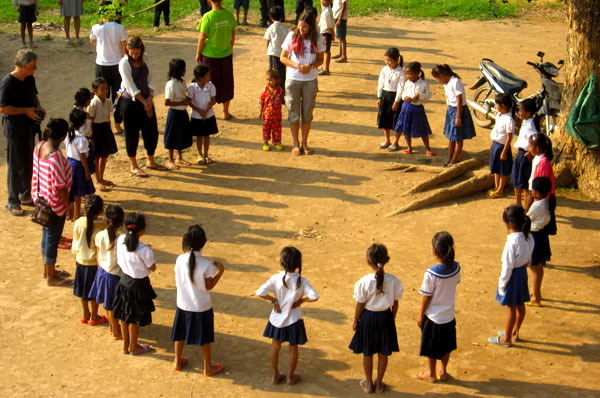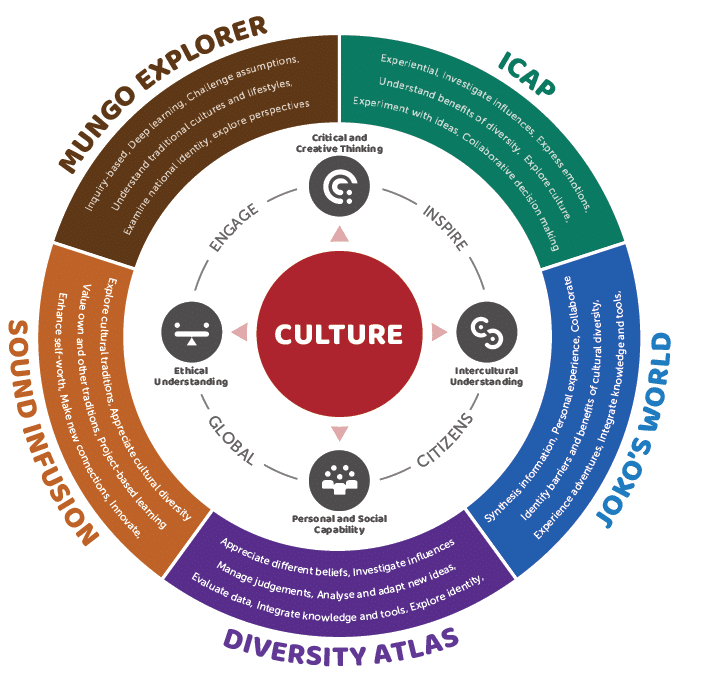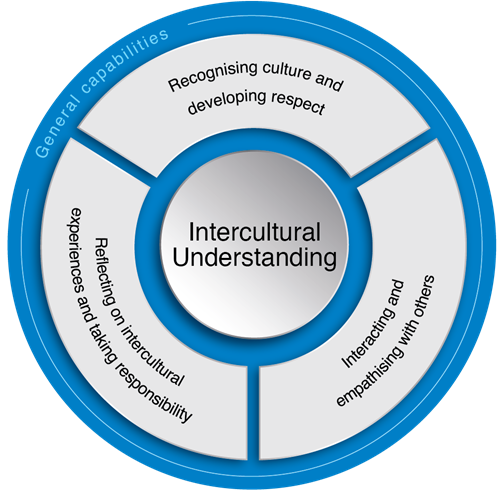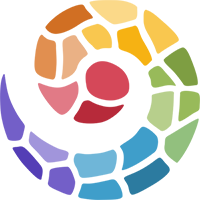
“Intercultural understanding is an essential part of living with others in the diverse world of the twenty-first century. It assists young people to become responsible local and global citizens, equipped through their education for living and working together in an interconnected world.”
Intercultural Understanding is now considered an essential General Capability in the Australian Curriculum (ACARA) and each teacher from Foundation to Year 10 needs to come to grips with how this subject can be approached and taught effectively across the learning areas. Being denoted as a General Capability, Intercultural Understanding needs to be woven into other subject areas. This is difficult as most of our teacher training took place before these General Capabilities where give such a strong and mandatory emphasis. Where does one begin? How are such things interwoven into the curriculum? What tools are available to bring the students into sync and be ahead in this area?
And then the key questions: What is, effectively, Intercultural Understanding and what are the outcomes? Intercultural Understanding involves community and an enhanced sense of belonging within a diverse community that is Australia of the 21st century. Intercultural Understanding is far more than food and festival days – it’s about developing empathy and seeing the world through different eyes and belief systems; seeing things in a different way. Intercultural Understanding reduces bullying, racism, and xenophobia, bringing a wider experience to the students. All state curricula bodies now emphasize Intercultural Understanding – in one form or another – in their outcome statements.

It is on these questions, and with these aims, that our digital platforms were conceived and eventually designed over years of consultation with universities, educators and social anthropologists. The key components of Learning Lands that target these issues directly is the Intercultural Citizenship Ambassador Program (ICAP) and Diversity Atlas. Together these curriculum tools ensure a solid foundation for this Capability embed into the general curriculum. ICAP provides comprehensive lesson plans, mind mapping techniques, and Icebreaker activities to truly bring students into the idea of being leaders, critical thinkers, and change agents in and for the future. The platform of Diversity Atlas maps the rich languages and ethnicities within your school. Students can teach students in Project Based Learning of their ancestral lands and belief systems – encouraging tolerance and understanding within your school community.
Why is Intercultural Understanding Important?
Nearly half of Australians were either born overseas or have one or both parents born overseas. Census data also tells us we speak more than 300 languages and have diverse religious beliefs.
With so many differences, how can we create connections, especially in a school environment where cultural differences can impact how students learn?
Intercultural understanding encourages awareness of our own cultural identity and helps us cultivate mutual respect.
The Australian Curriculum emphasises intercultural understanding as one of seven general capabilities that must be embedded across all subject areas. Intercultural skills develop important personal skills to co-exist with other cultures and diversity generally, but also intercultural understanding is a pivotal tool in navigating the future.
A 2020 study of teaching intercultural understanding in Australian schools found that the experiential nature of intercultural exposure was far more effective in developing intercultural understanding in primary and secondary students than language study or text book learning alone. Extra-curricular experiences, or excursions, such as attending cultural festivals and events are not available to every student, particularly if they live in regional areas. How else can students experience diverse cultures?
Cultural Infusion offers a suite of cultural programs as incursions – either face to face or by real-time virtual sessions. Discover the history of Australia’s First Nations Peoples with Have the Chinese Lion Dance visit your school, or Fairytale puppetry, as well as Bollywood dancing and Iranian singers. Many of our presenters are experienced educators. We recommend having a full multicultural day of five different cultures presenting their music, dance, storytelling and knowledge of their culture to your students.

By learning about and engaging with diverse cultures, students can create connections and develop mutual respect. Fostering essential qualities for global citizenship, intercultural understanding encourages students to express empathy, demonstrate respect and take responsibility.
These three key outcomes for Intercultural Understanding begin with identifying and observing with recognising culture and developing respect.
The second is interacting and empathising. By engaging with different cultural groups, students are encouraged to think about familiar concepts in new ways encouraging flexibility, adaptability and a willingness to try new cultural experiences.
Finally, the reflection stage, in which students are encouraged to reflect on their own behaviours and responses to intercultural encounters.
Digital Platforms
Cultural Infusion also has a set of digital programs addressing intercultural understanding in different interactive formats. These programs can be undertaken in a peer-to-peer learning approach, or as project based learning in groups or as a whole class. Each of these platforms have a set of lesson plans that can be used to best utilise the programs, or you can amend them to reflect your own pedagogic directions. Schools can subscribe to the whole suite of programs, or individual programs.
Sound Infusion
A web-based music platform, Sound Infusion features thousands of digital samples of instruments from around the world. Students can create original music compositions in endless combinations as a window into the cultural aspect of music. They will discover instruments they never knew existed and can experiment with the sounds and rhythms that these instruments can create.
Sound Infusion, as a digital platform, is ideal for project-based learning as understanding the musical aspect of different cultures intersects with the humanities and social sciences to bring intercultural understanding into hands-on, experiential learning. Students come to understand how these instruments – many very unusual and have existed for centuries – are fundamental to the social and spiritual coherence of the given culture through festivals and religious events.
These ideas are reflected in Sound Infusion’s lesson plans that not only enhance students’ musicology, but encourages cross-disciplinary exploration and enhances technological skills.
Intercultural Citizenship Ambassador Program (ICAP)
The ICAP program is the ideal tool for instilling intercultural understanding in your students, encouraging leadership, empathy, and cultural awareness. The two-part, 16-session program involves mind-mapping, developing trust and listening skills as they discover the various facets of what makes up culture. Students have the opportunity to create their own culture in a fun and interactive way. The students come away with a more comprehensive understanding of diversity.
Once the program is completed, there is an advanced stage during which students can become leaders themselves and take younger students through the program. ICAP is all about developing global leadership skills in our future generation of problem solvers.
Joko’s World
Joko’s World has won a suite of educational awards for its approach to learning culture through music for pre-primary to year 6 students. It is an app designed for tablets and mobiles engaging students as an interactive tool following Joko, the blue nightingale, as they travel the world exploring festivals, musical instruments, geography and history. An educational gaming app, Joko’s World features puzzles, stories, playing instruments on the device, and promotes numeracy and literacy in younger students. It’s a wonderful tool for introducing pre-primary and early primary students to intercultural understanding in a fun and engaging way, encouraging discussion and curiosity about cultures from around the world.
Mungo Explorer
A project-based learning platform designed for years 4 and 7, Mungo Explorer was created in alignment with the Australian Curriculum. Not only does this detailed program take students through the cultural understanding of the findings of the remains of Mungo Man and Mungo Lady – ritualistically buried more than 40,000 years ago – but also presents an understanding of changing landscapes of the last Australian Ice Age as discovered at Lake Mungo. This program brings together the knowledge of the migration of modern Homo sapiens when the world was a different place geologically, but also the understanding of how the Aboriginal people – the world’s longest continuing culture – lived more than 50,000 years ago in this area. Mungo Explorer takes students back through time and place to give a powerful and deep learning experience of Australia’s First Peoples and the changing landscapes of time.
Share this Post

